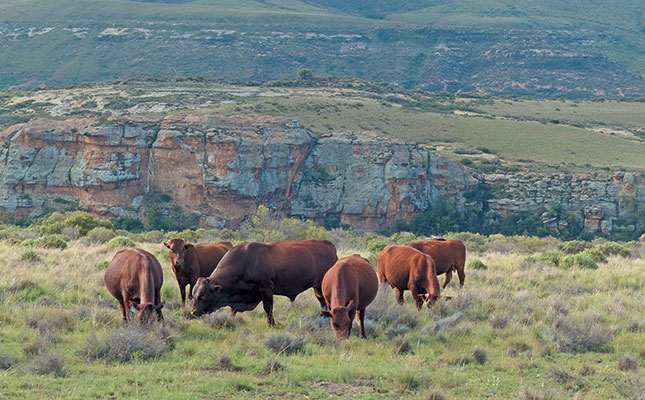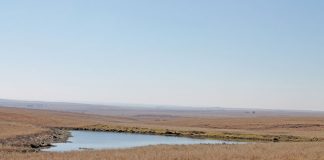
According to a recent climate advisory for the 2017 winter season from the Department of Agriculture, Forestry and Fisheries (DAFF), most summer rainfall areas, veld and livestock are in reasonable to good condition, with above-average summer crop yields anticipated.
“On the other hand, very dry conditions have been reported in the winter rainfall areas, and drought status has been declared in the Western Cape with water restrictions in place,” it states.
SA Weather Service (SAWS) scientist Cobus Olivier said that the system used for seasonal forecasting was effective at predicting summer rainfall, but less so with winter rainfall.
An earlier prediction of above-average rainfall in winter rainfall regions had been coupled with very low confidence levels.
This had since changed. According to Olivier, the scenario depicted in the current Seasonal Climate Watch (SCW) report, released on May 25, was described as a climatological forecast – or in layman’s terms, “anything can happen”.
“A forecast without confidence actually shows you something, but you know the skill levels (winter forecasting) are low so you have no confidence in that specific forecast. Whereas with an uncertain forecast, it’s actually not showing you anything so you don’t even have to talk about confidence.”
In a climatological forecast, each of the three categories – normal, above-normal and below-normal, had an equal (33%) chance of occurring.
Olivier said that the SAWS had tried to obtain greater clarity by studying the influence of systems such as the southern annular mode (SAM) system.
The SCW report stated that this had been showing a tendency towards a negative phase since November. This and a weakening polar vortex are often associated with colder, wetter conditions.
By contrast, a positive SAM phase and strengthening polar vortex tended to result in warmer, drier conditions.
A disadvantage of the SAM system, according to Olivier, was that it was predictable only about a fortnight ahead.
He said that as winter rainfall areas had been experiencing drought for some time, farmers needed to plan appropriately.
“We’re not saying it’s going to be a dry season but we do caution people there is a possibility, and in case it does occur, planning needs to be in place to mitigate the impact.”
DAFF said that dryland winter crop farmers should wait for sufficient moisture before planting and stay within the normal planting window.
“They are also advised to be conservative in their planting i.e. planting density/cultivar/area being planted. In addition they should consider drought-tolerant cultivars where possible,” the department said.
Irrigation farmers were urged to reduce the planting area in line with water restrictions in their areas.
DAFF advised livestock farmers to keep stocking levels in line with the carrying capacity of veld and supplement with feed such as licks.
Olivier said that the next SCW report would be released towards the end of next week.












